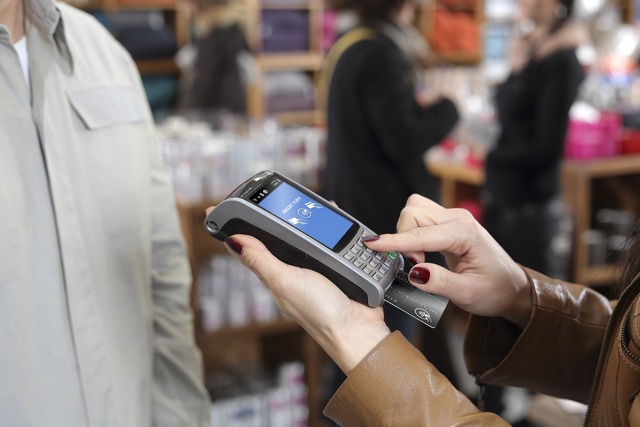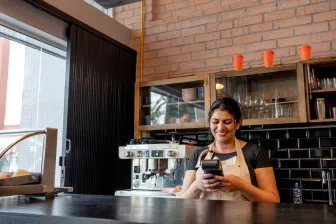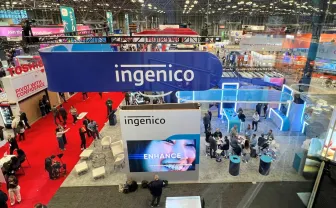 Hospitality is a dynamic industry and is constantly evolving, particularly with the integration of new technologies to engage customers and improve service quality. Hospitality executives need to be aware of key technologies in the market, including the latest developments in payment solutions. I’ve summarized four technologies that hospitality tech executives need to understand.
Hospitality is a dynamic industry and is constantly evolving, particularly with the integration of new technologies to engage customers and improve service quality. Hospitality executives need to be aware of key technologies in the market, including the latest developments in payment solutions. I’ve summarized four technologies that hospitality tech executives need to understand.
EMV: Global standard to curb credit card fraud
Nearly everyone involved in accepting payment is aware of the EMV migration by now. EMV is the global standard for verifying the authenticity of credit and debit cards at the point of sale. Major card brands have been driving EMV migration in the U.S. and merchants who are non-compliant face liability for fraud chargebacks. Therefore, merchants who haven’t done so need to upgrade their payment infrastructure as soon as possible. This upgrade should also make merchants think about their overall payment acceptance infrastructure and look for opportunities to make it better. Whether they look to accept mobile wallets or consider a semi-integrated approach for better security, EMV is just the beginning. If your hospitality business is not EMV-compliant yet, you should get started right away.
Point-to-Point Encryption (P2PE): The proven solution to reduce card data theft
 P2PE is a security solution that protects card data through the payment process—from start to finish. In the wake of high-profile credit card data breaches in 2014, which exploited weaknesses in payment card systems, P2PE has become a standard method to secure card data from potential interception during payment processing. For hospitality businesses looking to provide guests with a secure, optimal experience, P2PE is a proven solution that can help you protect your guests’ sensitive information while protecting your company’s brand.
P2PE is a security solution that protects card data through the payment process—from start to finish. In the wake of high-profile credit card data breaches in 2014, which exploited weaknesses in payment card systems, P2PE has become a standard method to secure card data from potential interception during payment processing. For hospitality businesses looking to provide guests with a secure, optimal experience, P2PE is a proven solution that can help you protect your guests’ sensitive information while protecting your company’s brand.
Tokenization: Multi-layered security to protect cardholder data
 Along with EMV and P2PE, tokenization is another important piece to a complete multi-layered security approach to help protect your guests’ cardholder data when it is being stored by your business. By replacing card data with a secure token during payment transactions, hackers are not able to access the actual card information. In theory, they can only access the encrypted tokens, which contain no card information. The tokens protect data at rest, such as card data being temporarily stored for purposes such as hotel stays or customer loyalty programs. Along with P2PE and EMV, tokenization enables merchants to limit the overall cardholder data risk environment and reduce PCI scope. For these reasons, tokenization will become more popular among the major hospitality merchants over the next couple of years.
Along with EMV and P2PE, tokenization is another important piece to a complete multi-layered security approach to help protect your guests’ cardholder data when it is being stored by your business. By replacing card data with a secure token during payment transactions, hackers are not able to access the actual card information. In theory, they can only access the encrypted tokens, which contain no card information. The tokens protect data at rest, such as card data being temporarily stored for purposes such as hotel stays or customer loyalty programs. Along with P2PE and EMV, tokenization enables merchants to limit the overall cardholder data risk environment and reduce PCI scope. For these reasons, tokenization will become more popular among the major hospitality merchants over the next couple of years.
Mobile Point of Sale (mPOS)/Pay-at-the-Table: Enhancing guest experiences with mobile and flexible payment acceptance
 One of the biggest trends in hospitality is the ability to accept card payments via mobile point of sale (mPOS). An mPOS solution frees your staff from being tied to the front desk or service counter, and it enables seamless card acceptance from anywhere a sale may occur. Secure payments can be accepted in virtually any environment—ranging from a restaurant table or stadium seat to a beverage cart on a golf course, poolside drinks and appetizers, or mobile check-ins for an airport shuttle. Notably, mPOS solutions are also EMV-enabled and offer P2PE and tokenization for added security, making them an ideal choice to protect customers and ensure PCI compliance.
One of the biggest trends in hospitality is the ability to accept card payments via mobile point of sale (mPOS). An mPOS solution frees your staff from being tied to the front desk or service counter, and it enables seamless card acceptance from anywhere a sale may occur. Secure payments can be accepted in virtually any environment—ranging from a restaurant table or stadium seat to a beverage cart on a golf course, poolside drinks and appetizers, or mobile check-ins for an airport shuttle. Notably, mPOS solutions are also EMV-enabled and offer P2PE and tokenization for added security, making them an ideal choice to protect customers and ensure PCI compliance.
Many hotel chains, including Hyatt, are already leveraging the flexibility and security of mPOS technology. Increasingly, restaurants are also adopting mPOS and wireless terminals to offer Pay-at-the-Table convenience to their patrons, including acceptance of EMV chip cards and NFC/contactless payments such as Apple Pay and Android Pay.
In addition to bringing payment acceptance to the customer, Pay-at-the-Table also provides several critical security benefits. EMV-enabled Pay-at-the-Table solutions give customers the peace of mind of added security as the payment device is brought to them at the point of service. Customers can safely and easily use their chip cards and enter PINs, if required right from their seats. This embraces a core principle of better card security, which consumers are hearing about more frequently: never relinquish possession of your payment card, even temporarily.
This combination of powerful security and faster, more convenient checkouts makes mPOS and wireless terminals the ideal approach to satisfy hospitality customers.
If you’d like to learn more about the latest payment technologies in hospitality and how they can enhance the checkout experience for you and your customers, watch our free webinar, “Changing Hospitality with Streamlined Data & Payment Processing.” Allen Friedman, our director of payment solutions, will be part of the webinar and will share many of his timely and industry-leading insights.
Tracey Stonebrook is a Strategic Development Program Manager at North America/Ingenico Group










